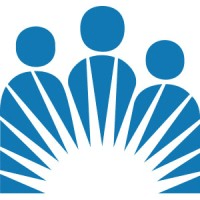This week’s spotlight is on Yassaman M. Mehrtash, PT, MBA, who is now Regional Rehabilitation Consultant, Community Agency Division for Kaiser Permanente Care at Home!
This post may contain affiliate links or codes. This won’t increase your cost, but it helps keep TNCPT alive, and free of annoying ads! Thank you for your support. 🙂
What is your full name, title, and company name for your current, primary role?
Yassaman M. Mehrtash, PT, MBA — Regional Rehabilitation Consultant, Community Agency Division for Kaiser Permanente Care at Home

Where are you located?
Southern California region
Where did you go to PT school, and what year did you graduate?
I graduated in 1993 from California State University at Northridge with a B.S. in Physical Therapy & Health Science.
What did you do when you first finished school, and for how long?
I worked in various hospital, post-acute, and clinic settings. Then, I chose home health as my final practice setting.
In what setting(s) did you work, and what types of patients did you treat?
I treated patients with orthopedic, neurologic, and general medical diagnoses.
Please refrain from contacting our spotlight participants on social media. There are thousands of readers just like you out there. 🙂 Please ask your questions in the comments on this blog post.
If you’re a Non-Clinical 101 student, you can network with many of our spotlight participants in the alumni groups!
What did you enjoy about your early roles? What didn’t you enjoy?
Once I tried treating patients in the home health setting, I really enjoyed the one-on-one interaction in the patient’s home. I could not go back to clinic or hospital settings.
What else have you done since then, prior to your current role?
I was a case manager and PT clinician in the home health setting for 16 years. Then, I was promoted to Clinical Supervisor and eventually held rehab manager roles for an additional seven years for the Kaiser Permanente Care at Home Division.
When and why did you decide to do something non-clinical?
My current department was newly created, and there was an opportunity for one rehabilitation consultant role.
I always look for new challenges and opportunities to promote my profession, so I volunteered and was accepted to be part of this very new team.
What are you doing these days?
I provide consultation to all community-contracted agencies that receive home health referrals from Kaiser to ensure that our members are receiving the same level of care and all their needs are being met.
Are you still treating patients, or are you solely non-clinical?
I no longer treat patients. I review therapy cases and referrals, and I provide consultation to my organization and the community home health agencies contracted with Kaiser. I also provide consultation regarding therapy program development and implementation.
How long have you been in your current regional rehabilitation consultant role?
I officially became part of the new team in June 2023.
Did you get any special certifications or training along the way to help you get into your current role?
In 2017, I enrolled in an MBA program to improve my management skills and knowledge. I graduated with honors in 2019. I highly recommend the MBA program for anyone interested in becoming involved in management and/or consulting.
How did you find your job? Did you apply or find it through a connection?
I have been employed by the Kaiser organization for 23 years in different roles and capacities. Once I learned about the creation of my department, I reached out to higher-level managers to inform them of my interest in this position.
What was the interview like for the regional rehabilitation consultant role?
I made sure to highlight how I could contribute to the success of the team.
What are some of the things you did to stand out, take initiative, and advance in your career?
I took initiative to inform my leaders of the gaps I observed in the department workflows or processes, and I made suggestions on how to improve them.
How have people reacted to you leaving patient care?
I was out of direct patient care for several years already, so it was a natural progression.
What’s a typical day or week in the life like for you? What types of tasks and responsibilities fill your time?
I work remotely three days per week and typically go into the office two days per week.
I am in constant communication with the members of my team via Microsoft Teams App. I provide consultation on therapy cases that have been referred to home health agencies outside of Kaiser to ensure members are satisfied and getting the level of care they need.
What are some of the rewards of your role? What are the biggest challenges?
The biggest rewards for me are:
- Helping patients navigate the very complex healthcare system to ensure they are receiving good care
- Highlighting the contributions of therapy services and rehabilitation to patient outcomes and functional independence
How did your clinical background prepare you for this role? Which skills transferred?
Years of treating patients in the home setting taught me how to best provide care that suits patients with different backgrounds and abilities. I am now able to communicate this knowledge by providing consultation to other therapists, nurses, and physicians.
Roughly speaking, how are the hours and pay compared to patient care?
I work full time in a salaried position that has comparable pay to a manager.
What type of person do you think would do well in your regional rehabilitation consultant role?
A person who would do well in my role is:
- Not afraid of taking on challenges and responsibilities
- Willing to work collaboratively with others and learn from them
- Open to feedback and willing to grow and change as needed
Does your organization hire PT, OT, or SLP professionals into non-clinical roles? If so, what type of roles?
Traditionally, that has not been the case. Most healthcare non-clinical jobs have been designed for people with nursing degrees, but that is changing as we need more diversity in all roles.
Did you read any books, take any courses, or do anything special overall to get you where you are today?
I completed a Kaiser leadership training that was offered to me.
What is a typical career path for someone in your regional rehabilitation consultant role?
My role is very new, so I’m carving out the path as I go.
What is next for you? What are your high-level career aspirations?
I hope to see more positions created for and offered to therapists in my organization. I hope to have a role in this endeavor.
What would you recommend to someone who is considering going into a role like yours? Do you have any special words of wisdom for the readers?
Research what is available in your area and how you can channel your knowledge into consulting.
Ready to start your own non-clinical career?
What would you like to change most in your profession, and why? How would you propose doing so?
I would like to see physical therapists become more influential and have a seat at the decision-making table in healthcare organizations. We are very focused on patient care, but not enough on promoting our profession and highlighting our contributions to the health and wellbeing of the population.
What career advice would you give yourself that you wish you had during school?
I wish I had obtained my MBA and pursued a managerial career earlier.
Editor’s note: Want to learn more about earning an MBA? Check out this spotlight on Jim Dyer, PT, DPT, MBA, who is now Senior LDRP Specialist for Medtronic!
What would you teach to today’s graduate students in your profession, if you had the opportunity?
Be resilient, be proactive, and be passionate about what you want to do.
Do you have any special advice for others who want to follow in your footsteps?
Get experience and become an expert in your field, so your knowledge is valuable to others.





